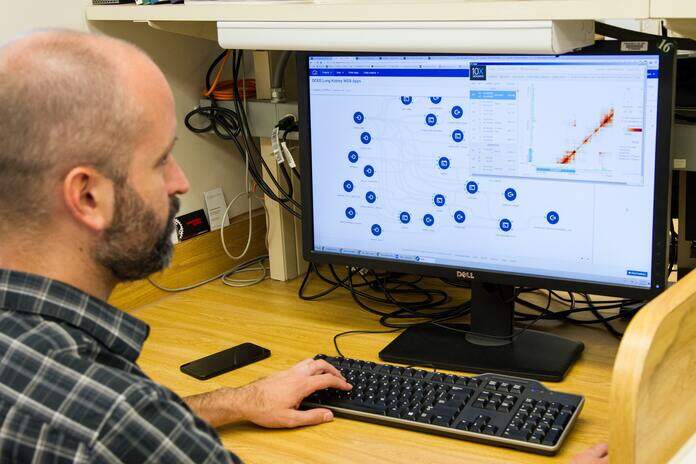Embark Technologies Inc. (NASDAQ:EMBK) is a technology business that provides autonomous driving technology to trucks. Embark offers software retrofits for truck fleets, transforming them into fully operational autonomous vehicles. They are solely a technology provider and do not own vehicles, yet their system is being created from the ground up to work with the fleets of every major trucking company in the United States.
In Q1 2021, the firm went public through a SPAC merger with the blank check acquisition entity ‘Northern Genesis Acquisition Corporation II’. The transaction received $200 million in private placement financing, principally from the marquee venture capital company Sequoia Capital and the well-known hedge fund/private entity vehicle Tiger Global.
While this company is publicly traded, it is still in the proof-of-concept stage and has yet to produce revenue. With that stated, it piqued my interest as a distinct participant in the autonomous driving space with a well-defined and potentially plausible plan.
Advances in Business Strategy and Go-to-Market
Embark has a unique strategy focusing on ‘transfer points’. These are locations where a human driver can hand off a truck for the autonomous portion of its route. Human drivers will still be in charge of final pickup and drop-off.
This is the finest method I’ve seen so far for autonomous trucks, in my opinion. Having a totally autonomous zone while leaving human operators in control of first- and last-mile pick-up and delivery reduces the complexity and hazards inherent in this new technology.
Going through their business plan further (investor presentation link), we discover that Embark is positioning itself to be a SaaS product. Its service is centered on Guardian, which is its cloud-based dispatch and monitoring solution. The actual technology that enables autonomous driving is being left to truck makers, which will drastically cut the company’s capital expenditures over its life cycle – thereby maintaining strong margins. Furthermore, the dispatch service that it is developing is being constructed in a generic (flexible) manner, allowing hardware manufacturers to easily interface with its offering.
The company is already testing its technology in the real world, and it has reached numerous significant milestones in this area. It accomplished its first coast-to-coast autonomous car voyage in 2016, and by 2017 had driven 100,000 miles. It is also gaining traction with a potential customer pipeline and is now in discussions/testing with numerous brand names. This year, Embark plans to conduct fully autonomous drives (no safety operator behind the wheel).
The company’s track record on safety is the culmination of all of this traction. So far, its performance has been outstanding, with the company claiming to have overseen 1 million total kilometers traveled without an incident recorded by the Department of Transportation.
Of course, all of this cutting-edge technology would be meaningless if there was no meaningful value proposition to back it up. The company also has a clear strategy and a high-quality economic proposition in this area.
The primary aspects of the value proposition for trucking companies are twofold: better fleet utilization and higher profit per mile. Because trucks will now be on the road 24 hours a day, the company forecasts a threefold improvement in usage per vehicle. Furthermore, not having to compensate drivers for the majority of the shipping route would result in improved profit margins, which the company estimates will grow up to 2x.
For shippers, the company would provide a 40% faster delivery cycle. This is also logical because each vehicle will have more utilization (time on the road) than in a traditional human-in-the-loop operation.
Risks
Given that this company is in the pre-revenue stage and can be termed a micro-cap ($98M market valuation as of this article), investors should proceed with caution. The risks, in this case, are enormous, and they principally concern whether or not the company will be able to apply its business model in the real world. Several layers of regulation, including federal rules, apply to autonomous trucking over state lines. These regulations are not yet specified, and if they are not established in the near future, they could have serious consequences for this company’s ability to execute. This is a real possibility.
The firm’s burn rate and cash holdings are under strain here, as they are in any pre-revenue entity. Embark appears to have a fair amount of gas left in the tank at the moment. It obtained a new round of funding in Q4 2021 and has been drawing down between $20M and $30M quarterly since then. With present burn rates, this provides it a runway of between 6 and 8 quarters. This pressure would be significantly greater if the corporation manufactured its own hardware. Furthermore, it has numerous deep-pocketed investors who are willing to put up small amounts of funds. Yet, if the regulatory situation becomes too slow, as is frequently the case, the corporation may need to raise extra financing. It is unclear if this will be necessary.
Conclusion
This company’s mission and approach are appealing to me. Its business concept and value proposition are clear and logical. Having a shipping network set up in this manner reduces tremendous complexity, both technically and legally.
Furthermore, the company is well ahead in terms of getting its trucks on the road. This, together with its growing roster of high-profile consumers, gives me confidence that it will eventually succeed. I expect investors to become intrigued and start investing as the firm and stock gain more visibility and demonstrate traction on their plan. As a result, I’m calling Embark Technology stock a buy.
Featured Image: Unsplash @ nci




